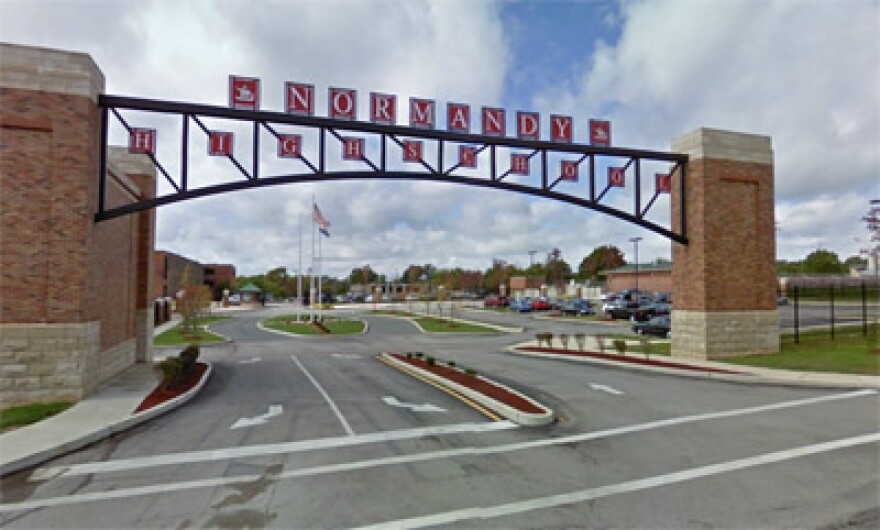From student suspensions to dirty cafeteria tables, concerns and complaints by parents and others in the Normandy school district were the topic of conversation at the district’s first community forum of the new school year Wednesday night.
Several dozen people gathered at Normandy High School for a 45-minute session where eight people spoke. The forums are designed to replace the opportunity for the public to make comments at meetings of the district’s appointed school board.
Superintendent Charles Pearson said the goal is to have more dialogue between members of the public and district officials than the meeting format allows. He said he thought the first session met that goal.
“I met the goal of people getting to talk,” he said after the meeting, which was limited so that anyone who wanted to could attend a college night that was also being held on the high school campus. “That was really the big one for me. And that was also the big one for the board. The board said this stuff was important. We couldn't do that in board meetings. There wasn't a protocol that we felt was correct.”
Pearson started the meeting with what he said was good news: So far this school year, attendance in Normandy is up and suspensions are way down. At this point last year, he said the district had 233 suspensions, but so far this year, that number is down to just 30.
But not everyone was impressed with the discipline numbers. A few women with family members at Barack Obama elementary school said they were unhappy with after-school suspensions given to children whose parents have a hard time getting them at the time they are finally released.
And one man, who would say only that he was representing the Shields family, wondered whether the drop in suspensions is really good news, or whether the district is just going easy on students to make its statistics look better.
“I’m just wondering,” he asked, “if that is one of the determining factors in the turnaround in our numbers. Are we too lenient? Because I do have some knowledge of some leniency.”
And another problem at Barack Obama was raised by Sheila Lowe, who said she has two grandchildren at the school. Holding up a plastic bottle filled with dirty-looking water, she said she had gathered it as an example of what custodians at the school were using to clean the tables in the cafeteria.
“You wonder how the kids sick,” she said. “This is how they get sick, passing germs to one another.”
Women who complained about suspensions at Barack Obama were seen discussing the situation with Principal Netra Taylor after the meeting. Pearson said that is the kind of dialogue he hopes this forum, as well as others set for October and November, can help create.

“Some people left here tonight with a little bit more understanding about what after-school detention is,” he said.
And, he added, he hopes that future sessions can be more productive by getting people to submit questions in advance, so district officials can be ready with the answers.
The whole point, Pearson said, is to give members of the community more of a role in how Normandy schools are run.
“We have a seventh and eighth grade center that needs a name,” he said. “These people could name it. They were the ones who said we need that middle school changed. We did it, but now we need them to tell us what they want it to be called. That's a great time to have dialogue.
“We need a new mission statement. I've got one I like. But I'm going to ask people. We're doing to do the process. I'm going to advocate for mine, but if they come up with something else, then we want to do that. That doesn't happen at board meetings.”
He noted that while enrollment in the district is down, not all families who signed up for their students to transfer from Normandy to other districts followed up on that intention.
“We still believe there are families who want to see if there is indeed a change in culture before they decide whether to leave,” Pearson told the forum.


